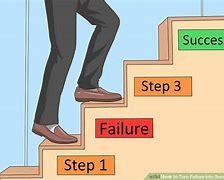Facing failure in the UPSC exams can be disheartening, but it’s crucial to remember that setbacks are often stepping stones to success. But it’s not the failure that defines you, it’s how you respond to it. Many successful candidates have navigated failures to eventually achieve their goals.
The Union Public Service Commission (UPSC) exam is one of the most challenging and competitive exams in India. With a success rate of less than 1%, it’s no surprise that many aspirants face failure at some point in their journey. But failure is not the end of the road. In fact, it can be a valuable learning experience that sets you up for success in the long run.
Every year, thousands of candidates who failed in their previous attempts go on to clear the exam and achieve their dreams. So, what sets them apart? How do they turn their failures into successes?
In this blog, we’ll explore the strategies, mindset, and techniques that can help you bounce back from failure and achieve success in the UPSC exam. Whether you’re a first-time aspirant or a seasoned candidate, this blog will inspire and guide you to turn your setbacks into stepping stones for success.
Acknowledge Your Emotions:
Failing to clear the UPSC exams can evoke a range of emotions—disappointment, frustration, and even self-doubt. It’s crucial to acknowledge and accept these feelings rather than suppressing them. Allow yourself time to process the disappointment and understand that setbacks are a natural part of any competitive journey.
Analyzing your failure :
Instead of viewing failure as a roadblock, see it as a valuable learning opportunity. Analyze where you fell short—whether in preparation, strategy, or exam technique. Assess your strengths and weaknesses objectively. Understand what areas need improvement and develop a plan to address them. Analyzing failure in the UPSC exam is crucial for understanding what went wrong and how to address those issues effectively. By identifying and addressing the common causes of failure—such as inadequate preparation, poor time management, lack of understanding of the exam pattern, and more—aspirants can develop targeted strategies to improve their chances of success in future attempts. Remember, failure is not the end but a learning opportunity that can pave the way for eventual success with the right approach and determination.
Refine Your Strategy:
Reevaluate your study schedule and methods. Did you allocate enough time to each subject? Were your study materials effective?
Take more mock tests and analyze them critically. Identify recurring mistakes and work on eliminating them. Seek guidance from mentors or peers who have successfully cleared the exam. Learn from their strategies and experiences. Consider joining a coaching institute if you haven’t already. Professional guidance can provide structured preparation and exam-specific insights.
Building Resilience:
Developing a growth mindset, a positive attitude and surrounding yourself with supportive people and taking care of your physical and mental health will help you build resilience. Successful aspirants bounce back from setbacks and learn from their mistakes. By establishing a clear purpose, developing a structured plan, embracing flexibility, and maintaining a positive outlook, aspirants can enhance their ability to cope with stress and setbacks. Prioritizing self-care, cultivating a growth mindset, and fostering a supportive network further strengthen resilience, paving the way for sustained success. Remember, resilience is not just about enduring the journey but thriving through it, making the path to success not only achievable but also fulfilling.
Seek Constructive Feedback:
Reach out to mentors, teachers, or peers who can provide constructive feedback on your preparation and performance. Listen attentively to their insights and suggestions for improvement. External perspectives can often highlight blind spots or areas where you can refine your approach.
Celebrate Milestones and Stay Committed:
Celebrate small victories and milestones achieved along the way. Recognize and reward yourself for progress made, whether it’s mastering a difficult subject or improving your mock test scores. Stay committed to your goal of clearing the UPSC exams and serving the nation through civil services.
Achieving success after failure in the UPSC exams requires resilience, determination, and a strategic approach to preparation. By embracing failure as a learning opportunity, conducting honest self-analysis, developing a comprehensive improvement plan, seeking guidance, staying persistent, maintaining well-being, learning from setbacks, and celebrating success, you can turn setbacks into stepping stones towards realizing your dream of becoming a civil servant. Remember, success is not defined by the obstacles you face but by how you overcome them with resilience and determination.
During your preparation journey, prioritize physical and mental health. Engage in regular exercise, maintain a balanced diet, and practice stress management techniques to ensure long-term well-being .Invest time in building a strong professional network. Develop good communication and relationship management skills to foster collaborative and supportive work environments. Adhere to ethical standards and integrity. Make decisions based on principles and values to build trust and credibility in your professional role. Be flexible and adaptable. Stay informed about changes in policies, regulations, and societal trends to effectively respond to new challenges and opportunities.
Balance theoretical knowledge with practical skills. Engage in real-world problem-solving and practical applications to enhance your job performance. Seek and value feedback. Regularly assess your performance and areas for improvement to ensure continuous growth and development.
Real-life success story of a UPSC aspirants who turned failure into success:
Story 1- Anudeep Durishetty
Anudeep, a civil engineering graduate, appeared for the UPSC exam in 2016 but failed to clear the preliminary exam. He was devastated but didn’t give up. Anudeep worked hard, analyzing his mistakes, and revised his strategy. He focused on his weaknesses, improved his time management, and practiced consistently.
In 2017, Anudeep reappeared for the UPSC exam and secured an impressive AIR 1 (All India Rank 1) in the Civil Services Examination.
Anudeep – “Failure is not the opposite of success; it’s a part of the journey. I learned from my mistakes, worked hard, and stayed focused. My success is a testament to the fact that with perseverance and dedication, anyone can achieve their dreams.
Anudeep’s story is an inspiration to many UPSC aspirants, showing that failure is not the end but a stepping stone to success.
Story 2- Avinash Mishra
Avinash attempted the UPSC exam four times but couldn’t clear it. Despite his failure, Avinash didn’t lose hope. He utilized his knowledge and skills to pursue a career in the private sector.
– Avinash joined a leading management consulting firm and rose through the ranks to become a senior consultant.
– He later moved to the education sector and founded his own coaching institute, helping hundreds of students achieve their dreams.
– He also authored several books on competitive exams and became a renowned motivational speaker.
Avinash-“UPSC may not have been my destiny, but it taught me valuable lessons. I learned to persevere, adapt, and innovate. Today, I’m proud of what I’ve achieved, and I owe it to my UPSC journey.”
Avinash’s story showcases that success is not solely defined by clearing the UPSC exam. His determination and resourcefulness led him to achieve success in other fields, inspiring countless others to pursue their passions.
Conclusion
Success in the UPSC exam is a remarkable achievement, but it’s crucial to navigate the journey beyond the exam with care and diligence. By avoiding common pitfalls and focusing on continuous growth, adaptation, and ethical conduct, aspirants can ensure that their success in the UPSC exam remains a solid foundation for a fulfilling and impactful career in civil services. The journey does not end with success; it is an ongoing process of learning, adaptation, and dedication.











